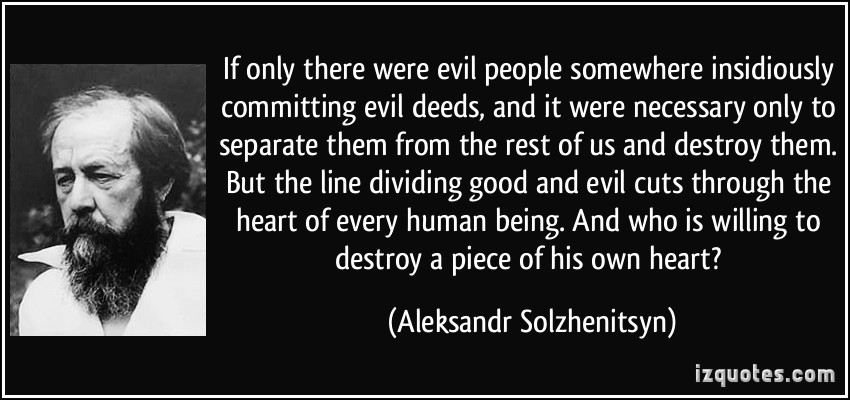Two posts that appeared yesterday on blogs I read seemed to me to converge on a common point, albeit from opposite sides.
First, Fred Clark offered a post about American Evangelicalism’s demonization of others (both real and imagined) so as to bolster its own goodness. At the end, after quoting C. S. Lewis, he writes:
American evangelicalism has been reshaped and redefined as precisely the thing that Lewis warned against — a never-ending quest for “the sheer pleasure of thinking [our] enemies are as bad as possible.”
“They want to kill babies.” It doesn’t matter that this is not true — that this is false witness borne against our neighbors. The only thing that matters is how it feels to imagine what it would mean if it were true — the “sheer pleasure” of being able to tell ourselves that others’ supposed wickedness somehow constitutes righteousness on our part.
That is the process that has made us into devils.
We do this, he wrote a little earlier in the post, because “Becoming better…is hard. So instead of working at that, we set out to imagine others as ever worse — as not just worse than us, but as superlatively evil. Thus the central focus on Satanic baby-killers, and the steady stream of accompanying Hitler analogies.”
Click through to read the whole thing.
Meanwhile, Bruce Gerencser wrote about the notion (popular among some atheists) that religion is a harmful virus, which has brought only evil into the world and nothing good, and which therefore ought to be eradicated. Here’s a sample from that post:
Standing on a street corner screaming I am an atheist might feel good, but it does little to change the world for good.
Look, I understand the anger some atheists have as a result of being misused, abused, and attacked by Christian fundamentalists. I share their anger and frustration over Christian fundamentalism’s war against justice, fairness, science, and freedom. But, suggesting that all religious belief is inherently harmful, a virus for which atheism is the antidote, helps no one. It makes the atheist out to be no different from the fundamentalist.
Click through to read the rest.
I soon realized that both posts were talking about the same phenomenon – the tendency to demonize people with a different point of view than ourselves, in order to convince ourselves that we are righteous by virtue of holding views different than theirs.
Much better, some of us would say, to walk side by side with those who think differently than we do, to stand together against injustice, to work together to feed the hungry and house the homeless, and recognize in those in need, as well as in each other, a common humanity, and that (as Solzhenitsyn said) “the line dividing good and evil cuts through the heart of every human being.”













